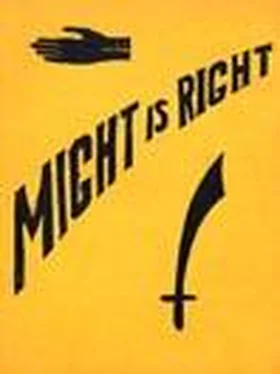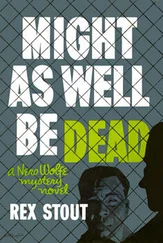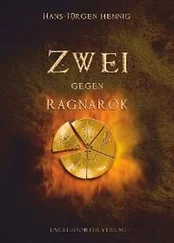Ragnar Redbeard - Might Is Right
Здесь есть возможность читать онлайн «Ragnar Redbeard - Might Is Right» весь текст электронной книги совершенно бесплатно (целиком полную версию без сокращений). В некоторых случаях можно слушать аудио, скачать через торрент в формате fb2 и присутствует краткое содержание. Жанр: Политика, на английском языке. Описание произведения, (предисловие) а так же отзывы посетителей доступны на портале библиотеки ЛибКат.
- Название:Might Is Right
- Автор:
- Жанр:
- Год:неизвестен
- ISBN:нет данных
- Рейтинг книги:4 / 5. Голосов: 1
-
Избранное:Добавить в избранное
- Отзывы:
-
Ваша оценка:
- 80
- 1
- 2
- 3
- 4
- 5
Might Is Right: краткое содержание, описание и аннотация
Предлагаем к чтению аннотацию, описание, краткое содержание или предисловие (зависит от того, что написал сам автор книги «Might Is Right»). Если вы не нашли необходимую информацию о книге — напишите в комментариях, мы постараемся отыскать её.
Might Is Right — читать онлайн бесплатно полную книгу (весь текст) целиком
Ниже представлен текст книги, разбитый по страницам. Система сохранения места последней прочитанной страницы, позволяет с удобством читать онлайн бесплатно книгу «Might Is Right», без необходимости каждый раз заново искать на чём Вы остановились. Поставьте закладку, и сможете в любой момент перейти на страницу, на которой закончили чтение.
Интервал:
Закладка:
Whatever their primitive purity (or impurity), all operative creedal philosophies are essentially civil and military codes, police regulations. ‘Religion is a power, a political engine, and if there was no God, I would have to invent one,’ said the great Napoleon. In letter and in spirit, Christianity is above all things a political theory, and a theory that often takes the form of raging hysterics.
Religions are the matrix in which public institutions are generally molded. This has ever been well understood by the dominant leaders of mankind, from Numa to Brigham Young, from Solon to Loyola, from Constantine to the lowest Levite hireling, who gets paid in dimes and cents for his unctuous mock — dithyrambs.
‘All ye are brethren.’
Are all men really brethren? — Negro and Indian, Blackfellow, Kalmuck, and Coolie — the well-born, and the base-bred, [2] These terms are used in the strict Darwinian sense.
— beer-soaked loafer, and hero-hearted patriot — belted chieftain and ignoble mechanic-slave, — pot of iron and pot of clay?
What proof is there that the brotherhood-of-man hypothesis is in accordance with nature? On what trustworthy biologic, historic or other evidence does it rest? If it is natural, then rivalry, competition, and strife are unnatural. (And it is proposed to prove in this book, that strife, competition, rivalry, and the wholesale destruction of feeble types of men, is not only natural, but highly necessary.) Has ‘brotherhood’ ever been tried upon earth? Where, when and with what final result? Is not self-assertion nobler, grander and more truly heroic than self-denial? Is not self-abasement but another term for voluntary vassalage; voluntary burden-bearing?
Christ might well and truthfully have said unto his followers ‘Come unto me all ye that are weary and heavy laden and I will bind you in unbreakable bonds, and load you down like an ass between two burdens.’
The ‘poor and ignorant’ were his first followers — the vagrants, the disinherited shiftless classes: and to this very day, the poorer and more ignorant men and women are, the more eager are they to follow his religious ideals, or the political millennialisms that are distilled out of his delusions.
‘If we only lived as Christ lived, what a beautiful world this would be,’ saith all thoughtless ones. If we lived as Christ lived, there would be none of us left to live. He begat no children; he labored not for his bread; he possessed neither house nor home; he merely talked. Consequently he must have existed on charity, or have stolen bread. ‘If we all lived like Christ,’ would there have been anyone left to labor, to be begged from, to be stolen from? ‘If we all lived like Christ’ is thus a self-evident absurdity.
No wonder that it is recorded: ‘Not many wise after the flesh, not many mighty, not many noble are called; but God chose the foolish things of the world, and God chose the weak things of the world, and the things that are despised.’ Nothing else would have anything to do with him. Christ was indeed, the prophet of the credulous rabble during three years of active agitation, and it abandoned him in his hour of need (what always happens under similar circumstances) for the rabble is ever cowardly, ungenerous, suspicious, unfathomably base. It has never yet had a leader of commanding ability (either in peace or in war) that it did not ultimately desert or betray, i.e. if he did not take the precaution to make himself its master.
After permitting Christ to be butchered, the mob thereupon set him up as their Divinity, and erected altars to his renown. Slaves, women, madmen, lepers, magdalenes, were the earliest Christians, and to this hour, women, children, slaves and lunatics are the raw material of the Christian Church.
Primitive Christianity cunningly appealed to the imagination of a world of superstitious slaves (eager for some mode of escape that meant not the giving and receiving of battle-strokes.) It organized them for the overthrow of Heroic Principles; and substituted, for a genuine nobility based on battle-selection, a crafty theocracy founded upon priest-craft, hell-craft, alms-giving, politicalisms, and all that is impure and subterranean. It is a doctrine at once disgraceful in its antecedents, its teachers, and in itself. Truly has it been called ‘the fatal dower of Constantine,’ for it has suffocated, or is suffocating the seeds of Heroism.
Both ancient and modern Christianism and all that has its root therein, is the negation of everything grand, noble, generous, heroic, and the glorification of everything feeble, atrocious, dishonorable, dastardly. The cross is now, and ever has been, an escutcheon of shame. It represents a gallows, and a Semite slave swinging thereon. For two thousand years it has absolutely overturned human reason, overthrown common sense, infected the world with madness, submissiveness, degeneracy.
Truly, there is a way which seemeth right unto a people, but the ends thereof are the ways of death.
Sound the loud timbrel,
O’er lands and o’er waves;
The Israelite triumphs!
The nations are — graves!
Is the Golden Rule a rational rule? — Is it not rather a menial rule — a coward rule — a best-policy rule? Why is it ‘right’ for one man to do unto others as he would have others do to him and, what is right? If ‘others’ are unable to injure him or ‘do good’ to him, why should he consider them at all? Why should he take any more notice of them than of so many worms? If they are endeavoring to injure him, and able to do it, why should he refrain from returning the compliment? Should he not combat them, does not that give them carte-blanche to injure and destroy him? May it not be ‘doing good’ to others, to war against them, to annihilate them? May it not also be ‘good’ for them to war against others? (Again, what is ‘good’?)
Is it reasonable to ask preying animals, to do unto others as they would be done by? — If they acted accordingly would they, could they survive? If some only accepted the Golden Rule as their guiding moral maxim, would they not become a prey to those who refused to abide thereby?
Upon what reasonable and abiding sanction does this ‘Rule’ rest? — Has it ever been in actual operation among men? — Can it ever be successfully practiced on earth — or anywhere else? — Did Jesus Christ practice it himself upon all occasions? — Did His apostles, his ‘sons of thunder’ practice it? — Did Peter the boaster do so, when he ‘denied Him’ for fear of arrest at the camp-fire? — Did Judas the financier, when he sold him for net cash? Also, how many of his modern lip-servants actually practice it in their daily business intercourse with each other? How Many?
These questions require no formal answering. They answer themselves in the asking. And here it must be remembered that the best test of a witness, is cross-examination. ‘Do unto others as you would have others do to you.’ No baser precept ever fell from the lips of a feeble Jew.
It is from alleged moralisms of this sort, and fabulous ‘principles’ that our mob orators, our communards, revivalists, anarchists, red-republicans, democrats, and other mob-worshippers in general derive the infernal inspiration that they are perpetually hissing forth. Even the subversive pyrotechnic watchwords of their mephisto-millennium, are to be found in the ‘holy gospels.’ Is it not written, ‘and God sendeth angels to destroy the people?’ — Behold! these men are the ‘angels’ that He sends: — politicians and reformers!
‘Love one another’ you say is the supreme law, but what power made it so? — Upon what rational authority does the Gospel of Love rest? — Is it even possible to practice, and what would result from its universal application to active affairs? Why should I not hate mine enemies, and hunt them down like the wild beasts that they are? Again I ask, why? If I ‘love’ them does that not place me at their mercy? Is it natural for enemies to ‘do good’ unto each other and, what is ‘good’? Can the torn and bloody victim ‘love’ the blood-splashed jaws that rend it limb from limb? Are we not all predatory animals by instinct? If humans ceased wholly from preying upon each other, could they continue to exist?
Читать дальшеИнтервал:
Закладка:
Похожие книги на «Might Is Right»
Представляем Вашему вниманию похожие книги на «Might Is Right» списком для выбора. Мы отобрали схожую по названию и смыслу литературу в надежде предоставить читателям больше вариантов отыскать новые, интересные, ещё непрочитанные произведения.
Обсуждение, отзывы о книге «Might Is Right» и просто собственные мнения читателей. Оставьте ваши комментарии, напишите, что Вы думаете о произведении, его смысле или главных героях. Укажите что конкретно понравилось, а что нет, и почему Вы так считаете.












